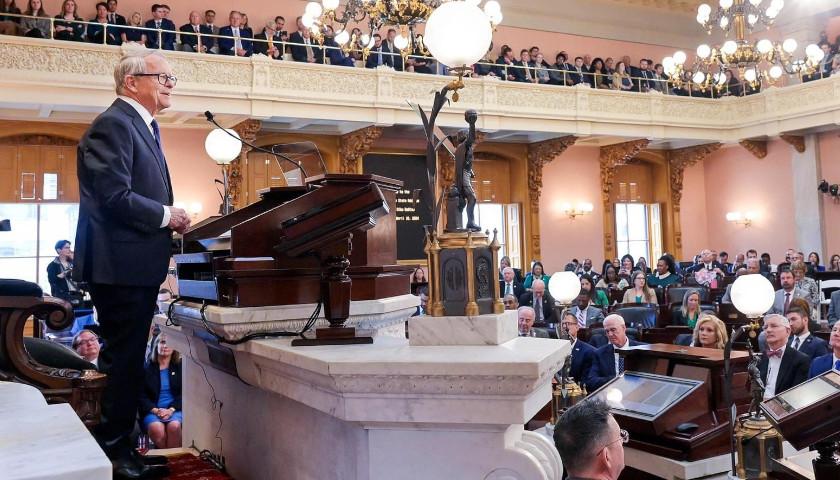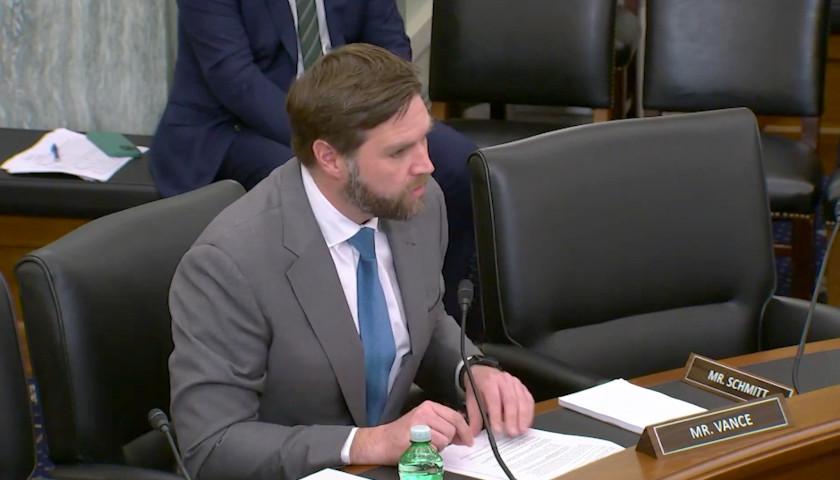by J.D Davidson
Saying he has the backing of health care professionals and business leaders, Ohio Gov. Mike DeWine vetoed a bill that would give the General Assembly oversight over health orders.
In a statement of reasons for the veto of Senate Bill 311, DeWine, a Republican, said medical experts think it restricts public health officials’ ability to react to public health threats and is “not in the best interest of protecting the health and safety of all Ohioans.”
Ohio Senate President Larry Obhof, R-Medina, disagreed.
“I don’t think it has a limit on the health orders,” Obhof said. “I think the vast majority of members of the legislature do not support the specific idea of stay-at-home orders. [The bill] largely says you cannot have a mandatory statewide or regional quarantine of people who haven’t come in contact with the virus. You cannot have a stay-at-home order with criminal penalties.”
The measure, easily passed with Republican majorities in both the House and Senate, prohibits a statewide stay-at-home order like the one enacted by DeWine in the spring, and it gives the legislature the ability by concurrent resolution to end other orders that shut down businesses.
DeWine, who earlier called the legislation a disaster, had said all along he planned to a veto, but Republicans in both the House and Senate believe there are enough votes to override.
Ohio Speaker of the House Bob Cupp, R-Lima, said he was disappointed in the veto and discussions will begin on the next steps.
“We are disappointed with the governor’s veto of Senate Bill 311,” Cupp said. “This is a balanced and reasonable plan that would provide appropriate legislative oversight of these health orders and ensure Ohioans voices are heard and their rights protected. I will be discussing next steps with the members of our caucus.”
Obhof said he had productive conversation with the administration this week, and he hopes to be able to work out a compromise. However, he added the Senate has the votes to override.
“We have the votes to do that. If we are able to work productively on the situation, we all want the same things,” Obhof said. “There is a significant portion of the legislature and the public that think government shouldn’t have the authority to make you stay in your home.”
When passed, the bill did not include an emergency clause, which would have made it effective when signed by DeWine or a veto override. The law would not go into effect until 90 days after both chambers override.
With state and federal officials hoping a COVID-19 vaccine will be ready by the middle of the month, there is potential for DeWine to pull back current orders before the legislature gets an opportunity to begin the process of examining them.
“Since we couldn’t get Democrats to be part of this bill, we are looking at 90 days,” State Rep. Scott Wiggam, R-Wooster and bill sponsor, said.
– – –
An Ohio native, J.D. Davidson is a veteran journalist with more than 30 years of experience in newspapers in Ohio, Georgia, Alabama and Texas. He has served as a reporter, editor, managing editor and publisher. Davidson is a regional editor for The Center Square.








